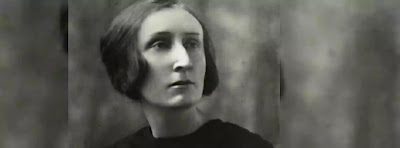Also Read
Dame Edith Sitwell (1887-1964), the eldest of the celebrated children of Sir George Sitwell, of Renishaw Hall, in Derbyshire, was born at Scarborough and educated privately. With her brothers, Osbert (1892-1969) and Sir Sacheverell (1897-1988), she edited Wheels: an Annual Anthology of Modern Verse, which appeared between 1916 and 1921 and revolted strongly against the popular Georgian poetry.
Like all the poets who achieved prominence in our period, Edith Sitwell was deeply conscious of the unhappiness and spiritual emptiness of the inter-war years, but, where the Auden school found its hope in politics, she sought to escape into the world of childhood and art. She shares with her brothers a nostalgic regret for the culture whose disappearance she was called upon to witness, and all her writing reflects her aristocratic background and outlook. With great verbal dexterity, much wit, and a jewelled brilliance of effect, her early poetry, as seen in Clowns' Houses (1918), The Wooden Pegasus (1920), and Bucolic Comedies (1923), creates a wholly artificial world from the dreams of childhood.
Edith Sitwell is essentially an artist, exploiting to the full the magic of language, ceaselessly experimenting with verse forms and patterns, and her technical virtuosity is most strikingly seen in Facade (1922). In a single word or brief phrase she can achieve a striking effect, and the vividness of her imagery and her love of rich colour contribute much to the charm her work. She is particularly fond of describing the perceptions of one sense in terms of another (e.g., a "pig-snouted breeze"). often, however, her poetry seems to be made up of a series of more or less connected sense impressions, which, though striking in themselves, seem to lead the reader nowhere. During more recent years her verse lost much of its earlier brittleness, and the humanity which underlies all her writing became more apparent.
As a critic, Edith Sitwell tends, as her own poetry might lead us to suppose, to lay overmuch stress upon the patterns and technical skills of poetry, as though verbal artistry were all in all. None the less her sensitive analysis of the poetry of Pope in Alexander Pope (1930) did much to provoke a revaluation of the work of that unjustly neglected artist.
In addition to those works already mentioned, her publications include The Sleeping Beauty (1924); Troy Park (1925); Collected Poems (1930); The Pleasures of Poetry (1931-34); Bath (1932); The English Eccentrics (1933); Aspects of Modern Poetry (1934); Street Songs (1942); and The Song of the Cold (1945).
